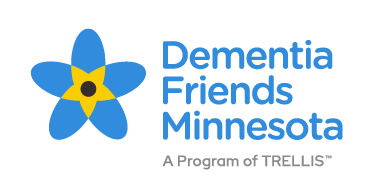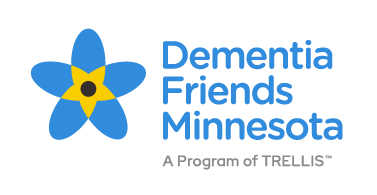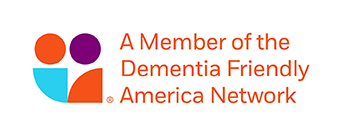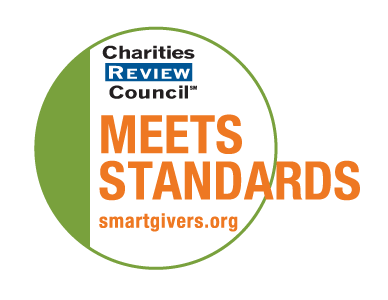Dementia Friends Interview: Edie Weinstein
To celebrate the tenth anniversary of Dementia Friends Minnesota, every month we will be featuring a Friend who has taken the work to new heights. This month, we spoke to Edie Weinstein, youth leader and author of Grandpa and Lucy: A Story about Love and Dementia (2017). Edie is currently a third-year student at the University College Dublin, studying English and linguistics.
How did you get involved in Dementia Friends?
Right before my 7th grade year, I went to a Dementia Friends session at my parish. My mom (Ann Brombach) worked in dementia care and suggested I go with her. I went to the event, and it was kind of the first time that I had thought about dementia in terms of how it is affecting young people and how it plays a role in our lives. And it was shortly after that presentation, the new awareness started filtering through my middle school brain. Specifically, I remember a couple times in Highland Village and some folks came over and were clearly confused, and my friends kind of went away from the situation, and I had the skills from that session not to be scared but to engage them and help. That was a big a-ha moment, that knowledge does equal a greater capacity for empathy, for helping others.
It was also around that time that I started working on my Girl Scout Silver Award project, where you take on an active problem and make a sustainable solution. I was looking at this Dementia Friends material that is so powerful but is made for adults and yet as young people, we are the ones going into grandparents' homes, people with dementia, without any kind of training and hoping for a relationship to form. The idea was to make a tool for young people to have concrete information so that dementia becomes less of a barrier. It was also shortly after my grandpa had passed. He never had dementia, thankfully, but I was thinking about how much of a role he played in my life and how different it would have been if he had dementia and I had not had the information I needed.
Tell us about working on the book.
It started as a kernel of an idea. I’m a writer, I have been since I could hold a pen. In addition, we were doing children's book writing in school so that came together in the sense I wrote it and sent it to dementia experts, community leaders (SPN-ACT), and a book editor to make sure I wasn’t spreading any false information. For the illustration process, I lead a group of my classmates from Nativity of Our Lord Catholic Church. We went to Davanni’s once a week during the summer and worked on it, which was so fun.
The whole idea was that it was going to be a book by young people for young people. As you look through the book, you can see it was a bunch of young people coming together with different levels of artistic experience and styles. One of my friends spilled a little pizza sauce on it and that’s why on one page there’s one red flower and the rest is green.
I remember Meghan Constantini from SPN-ACT reached out and said that they would like to publish. Which was just unbelievable, I'll never forget that first copy coming in. And since then, it has gotten so much support, which is so moving. I'm so grateful because the whole point of it was that it reaches other young people.
After it got published, I was invited to read it at a St. Cloud gathering for Dementia Friends. That also ended up sowing some seeds that kind of kept the book moving forward in many ways. A librarian contacted Anton Jones (Former Artistic Director, CLIMB Theater) and it was adapted into a play and performed in schools and communities around the Midwest, which is cool.
What is something you’ll take away from this work?
I think one of my favorite moments of all time with the book has been getting a picture of a grandmother reading the book to her grandchild on her lap, and that’s the whole point of the book, to inspire connection between grandparents and grandkids. I'm very grateful for all the support that has helped us achieve its purpose. I hope that the book brings comfort and helps people feel seen and confident in their ability to show kindness.
What does an intergenerational dementia friendly community look like to you?
Equity in the sense of us looking at what each individual person needs for dementia-friendliness. What a 15-year-old, a high school student working as a cashier needs to be dementia friendly is immensely different from what a four-year-old needs, or what a 25-year-old needs, or what a 65-year-old needs. We need to be intentional about what we mean by dementia-friendliness in each context.
What advice do you have for other younger folks who wants to create a dementia friendly community or do something for the Dementia Friends movement?
Number one: Think global, act local. It’s a cliché for a reason. Check in with our family first so we can pour from a full cup and make sure that our own family is being taken care of.
Two: Knowing that what young people do makes a difference and having that presence and ownership of that fact. What young people bring is enough. The joie de vivre is enough. There needs to be someone there who can take your grandparent to the doctor, but there also needs to be someone who will sing the Christmas songs that your grandparent sang when they were a kid. It takes every talent. Don’t discount what you bring. There are so many ways to be kind and doing it in your own home doesn't mean it's less vital to that community.
Finally: Young people should not assume that [dementia-friendly approaches] are being considered. It's easy to assume that [the adults] are already thinking about it. And it is really important to speak up.



